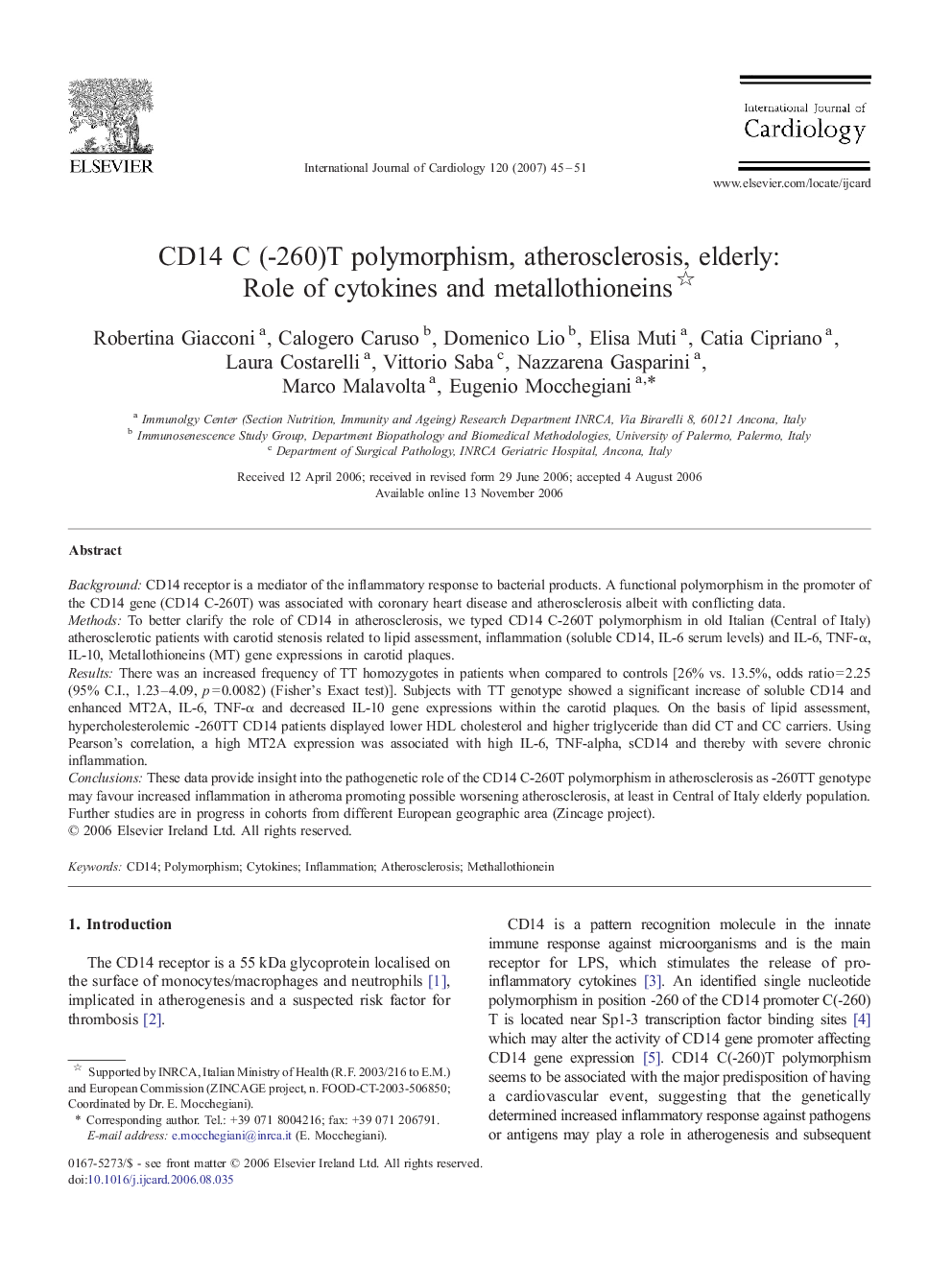| Article ID | Journal | Published Year | Pages | File Type |
|---|---|---|---|---|
| 2936046 | International Journal of Cardiology | 2007 | 7 Pages |
BackgroundCD14 receptor is a mediator of the inflammatory response to bacterial products. A functional polymorphism in the promoter of the CD14 gene (CD14 C-260T) was associated with coronary heart disease and atherosclerosis albeit with conflicting data.MethodsTo better clarify the role of CD14 in atherosclerosis, we typed CD14 C-260T polymorphism in old Italian (Central of Italy) atherosclerotic patients with carotid stenosis related to lipid assessment, inflammation (soluble CD14, IL-6 serum levels) and IL-6, TNF-α, IL-10, Metallothioneins (MT) gene expressions in carotid plaques.ResultsThere was an increased frequency of TT homozygotes in patients when compared to controls [26% vs. 13.5%, odds ratio = 2.25 (95% C.I., 1.23–4.09, p = 0.0082) (Fisher's Exact test)]. Subjects with TT genotype showed a significant increase of soluble CD14 and enhanced MT2A, IL-6, TNF-α and decreased IL-10 gene expressions within the carotid plaques. On the basis of lipid assessment, hypercholesterolemic -260TT CD14 patients displayed lower HDL cholesterol and higher triglyceride than did CT and CC carriers. Using Pearson's correlation, a high MT2A expression was associated with high IL-6, TNF-alpha, sCD14 and thereby with severe chronic inflammation.ConclusionsThese data provide insight into the pathogenetic role of the CD14 C-260T polymorphism in atherosclerosis as -260TT genotype may favour increased inflammation in atheroma promoting possible worsening atherosclerosis, at least in Central of Italy elderly population. Further studies are in progress in cohorts from different European geographic area (Zincage project).
